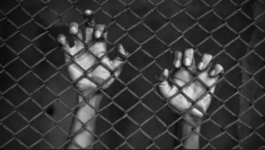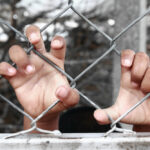Victoria Looks Set to Raise the Age of Criminal Responsibility

Victoria looks set to raise the age of criminal responsibility, with reports that Premier Daniel Andrews has signed off on paperwork to increase the age at which children can be prosecuted for criminal offences from 10 to 12 years.
And while if the reports are true, it is a step in the right direction given our nation’s appalling track record of putting kids in custody and the adults who are meant to be protecting them committing disgraceful abuses on them whilst they are there, many believe it does not go far enough.
As to the issue of abusing children in custody in the Northern Territory, perhaps we can note that our blog exposed these very issues – including kids being gassed and tearmasked – well before the mainstream media, namely the ABC, reported about the exact same atrocious acts in their supposed ‘expose’ titled ‘Australia’s Shame’ – with other mainstream media organisations jumping on the bandwagon of concern thereafter.
In any event, the detention and abuse of children remains a very real problem in Australia.
Responsibility for crimes
For years, experts, science and brain research have all pointed to the fact that the age of 14 – with full-time detention permissible from the age of 16 – is the preferable age to set for criminal culpability because children under the age of 14 tend not to have the level of maturity and cognitive function to actually be criminally responsible.
12 years is not high enough
This has been a difficult debate in Australia, because punitive justice, leading to juvenile detention, disproportionately affects indigenous children who already suffer at higher rates from, poverty, homelessness, lack of education, generational alcoholism and addiction, trauma, learning disorders, cognitive disabilities and general social disadvantage … and they need our help.
Instead, in Australia, we perpetuate our long and shameful habit of locking these vulnerable children in facilities which are dangerous, unclean, harsh and isolating – and don’t fill any of their needs, which only further traumatises and marginalises them. More often that we care to admit children are locked in adult facilities because detention centres are over-crowded or mistakes have been made. And, tragically, it’s becoming something of a ‘norm’ to hear horrific stories of child abuse within detention centres themselves.
Time and again research has shown that children who end up in the juvenile justice system are essentially set up for a life of crime – because criminalising the behaviour of these young and at-risk people more often than not creates a cycle of crime and punishment which forces them to become entrenched in the criminal justice system.
And while we do tend to focus on the negative impact on indigenous kids when we have this debate, the fact is that juvenile detention is incredibly detrimental to ALL children, irrespective of their racial background.
Investment in diversion programmes and other alternatives
These young people are more likely not to complete an education or get a job, and have little prospects for becoming productive, successful, contributing members of society, when actually doing so would not only safer and better for the individuals themselves and our society as a whole, but when it comes down to it, rehabilitation is much cheaper on the public purse too, in the long-term.
Experts have long encouraged successive Australian governments to invest in diversion programmes and other options for children and young teens which mean they are still punished in line with community expectations, and held accountable when they break the law, but not locked up in facilities which do much more harm than good.
Very serious crimes
Most people would think that it’s obvious that prisons should be places where civil liberties are deprived – it is intended as justice after all – and that’s an opinion that needs to be acknowledged, because in recent times a number of young teens have committed some horrific crimes – including murder, detaining a person, and assault.
These are by no means ‘petty offences’.
However, there is research to suggest that with the right support, a significant percentage of children who commit crimes – even terrible crimes – can turn their lives around, with the right opportunities and the right kind of help.
There is definitely a case for the fact that now we know better, we need to do better. And we certainly are learning more about the harmful long-term effects of locking up children (and adults) and we have numerous examples we can follow.
The Netherlands, Sweden, and Portugal are three countries which have changed their attitudes to prison over all, and are experiencing very positive results with alternatives such as sentences served within the community and open prisons. Here, in Australia we do have a number of programs that offer alternatives to detention for youths, however typically these tend to be under-funded and under-resourced.
Age of culpability around Australia
But in Australia, even the Council of Attorneys-General has failed to take any leadership on the issue. In 2019, an Age of Criminal Responsibility Working Group was tasked with considering submissions from a range of organisations and experts of various backgrounds regarding raising the age of criminal culpability nation-wide to 14.
In 2020, the working group indicated that more work needed to be done on alternative forms of punishment before it could make recommendations. In late 2021, the Council of Attorneys-General failed to reach a national consensus.
Without any national consensus, states and territories continue to determine their own laws.
While Victoria has not ruled out the possibility of raising the age to 14, it doesn’t look set to do so until 2027, leaving most of us wondering – why wait?
The Victorian Government has intimated that waiting will bring the state in line with the Australian Capital Territory, which intends to lift the age of criminal responsibility to 14 the same year. The Northern Territory is already in the process of raising the age to 12.
In New South Wales, the age of culpability remains 10 years, as in other jurisdictions around the country, including Queensland and Western Australia.
According to statistics being circulated by the NSW Greens Party, the NSW Government is presently spending almost $714,000 per child per year of detention and almost $250 million on youth justice annually.







